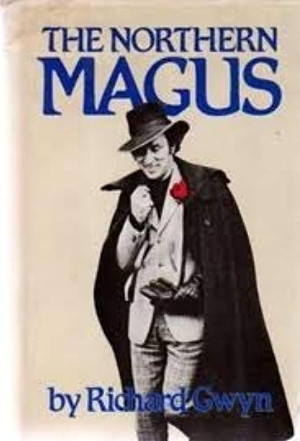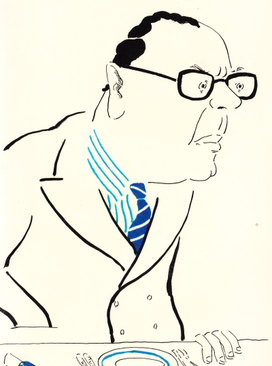As a great admirer of A Dance to the Music of Time, the twelve-novel sequence by Anthony Powell, I was interested to come across a mention of Kenneth Widmerpool, one of the most famous characters in the series, in The Northern Magus: Pierre Trudeau and Canadians (Toronto: McClelland and Stewart, 1980, pp. 77–79) by Richard Gwyn.

The Trudeau is Pierre Trudeau, prime minister from 1968 to 1984 (with a short interruption) and father of our current prime minister, and Pitfield is Michael Pitfield, Clerk of the Privy Council of Canada.
Yet Pitfield remains dependent on Trudeau. Trudeau can do so much that Pitfield cannot: be an athlete; be an object of desire to women; be a writer (Pitfield’s prose is leaden); be popular; be elected Prime Minister. “Michael is scared of Pierre” says someone who knows both well. For all Pitfield’s power and intimidating presence, there clings to him a faint aura of Widmerpool, the dogged, seeker after power in Anthony Powell’s series of novels, A Dance to the Music of Time. Despite his extraordinary success, Pitfield remains curiously solitary, uncertain, vulnerable. Only after about 1977, by then confident of his position, did Pitfield begin to act, as one minister describes it, “not as Trudeau’s representative to the civil service, but as he should have all along, the representative of the civil service to the Prime Minister.”

…
Just as in Powell’s novels Widmerpool emerges in the end as the most memorable of characters, Pitfield, in his way, is as memorable a figure as Trudeau. As complicated, less-controlled, more human for all his ruthlessness, and essentially more creative, Pitfield’s shining accomplishment has been to create the modern Privy Council Office, and to structure it, superbly efficient despite its flaws, as the central nervous system for the entire government. “PCO,” says a colleague, “is Michael’s Sistine Chapel.”
Dance is one of the best things written in English in the twentieth century. If you haven’t read it, you may find the first book rather episodic and wonder if you should continue, but for me it was the second in the sequence where I realized it was a work of genius. Half the book is devoted to an extraordinary night where the narrator goes a to a dinner party, then a ball (this is London in the 1920s), then meets an old friend from the first book and goes on to a wild party. Widmerpool is in both books.
I cannot recommend the series highly enough, though as Powell has narrator Nick Jenkins say, “I was impressed for the ten thousandth time by the fact that literature illuminates life only for those to whom books are a necessity. Books are unconvertible assets, to be passed on only to those who possess them already.”
 Miskatonic University Press
Miskatonic University Press